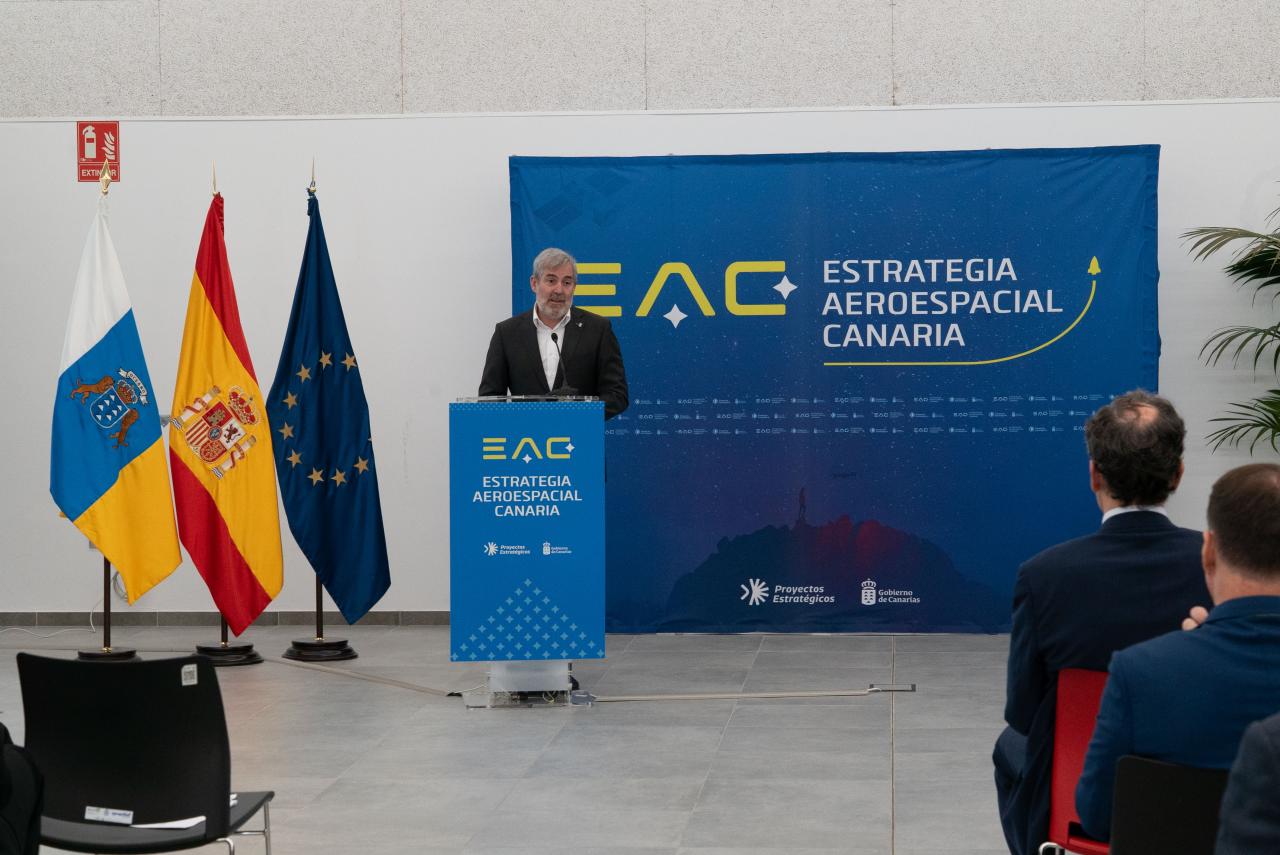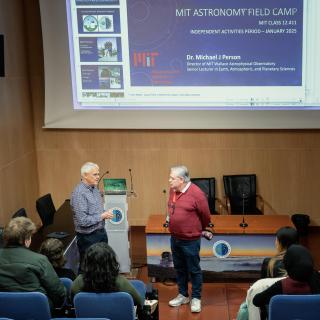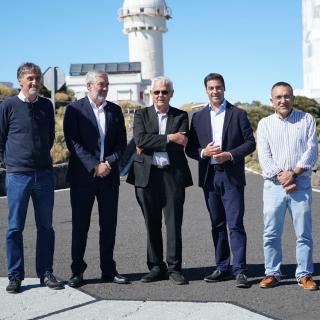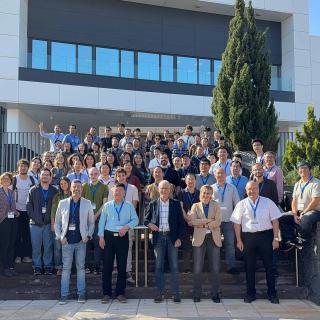The Instituto de Astrofísica de Canarias (IAC) is positioning itself as one of the main partners of the Government of the Canary Islands in the Canary Islands Aerospace Strategy, presented this Wednesday by President Fernando Clavijo. The goal is to position the archipelago as a key player in a rapidly growing sector, promoting innovation, technology transfer, and the creation of high value-added jobs.
The President of the Canary Islands, Fernando Clavijo, presented this Wednesday the strategy developed by the Government to position the archipelago as a “key player” in the Spanish, European, and global aerospace sectors. The objective of the new Canary Islands Aerospace Strategy (EAC) is to coordinate public-private initiatives under a common framework in order to “work together” to attract companies to the islands that will generate wealth, diversify the productive system, and create high-quality jobs.
In this regard, Clavijo emphasized the opportunity for the Canary Islands to become a hub for the aerospace sector in the mid-Atlantic and the importance of investing in a booming industry driven by innovation and technology. “We cannot miss this train,” he said, explaining that the EAC was created to facilitate the establishment of companies in the islands and help them access public funding to support cutting-edge projects.
The regional president expressed confidence that the Canary Islands have “everything necessary” to become “a key piece in a high value-added industry like aerospace,” a sector he described as “a great opportunity” to diversify the Canary Islands’ economy.
During the launch event for the Canary Islands Aerospace Strategy at the IACTEC building in the Las Mantecas Technology Park (La Laguna), Clavijo recalled that the archipelago has “an almost unique combination of advantages” to attract companies that are currently searching globally for the right environment to develop innovation and new technology projects.
In addition to favorable climate conditions, terrain, oceanic surroundings, proximity to Africa, and economic-fiscal benefits, Clavijo stressed that the islands have a solid foundation to build a competitive aerospace industry. “We have a robust ecosystem of scientific and technological infrastructures,” he said, referring to internationally renowned facilities such as the Canary Islands Space Centre (CEC), the Instituto de Astrofísica de Canarias (IAC), the Gran Telescopio Canarias (Grantecan), the PLOCAN, and the Canarias Stratoport for HAPS & UAS in Fuerteventura.
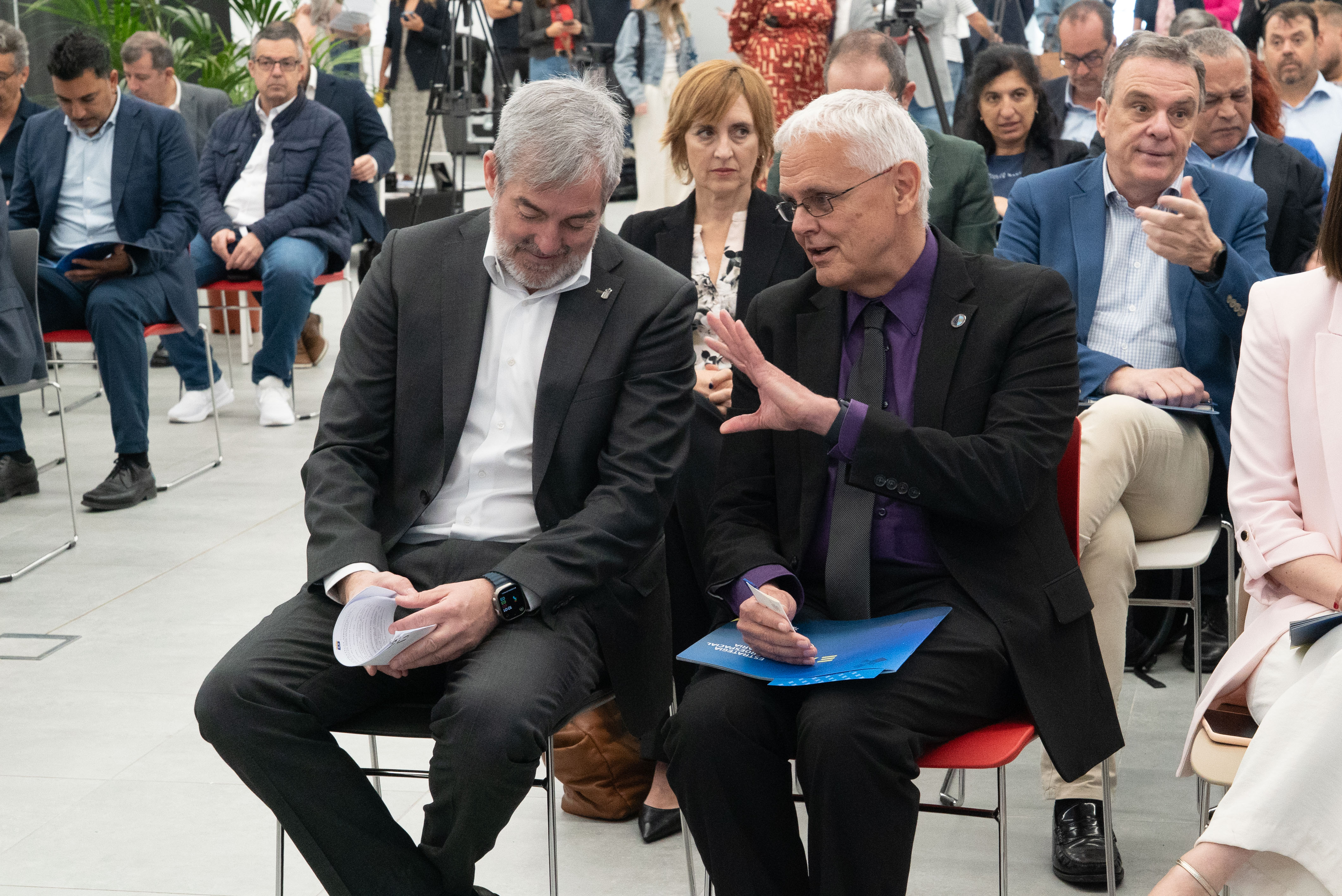
The President also used the occasion to highlight the local talent as another competitive advantage. “We have teams with extensive experience in sectors complementary to aerospace, and professionals from our public universities who will be key in offering our talent to the companies already investing in the Canary Islands—and those that will do so very soon,” he said.
According to Clavijo, all these strengths must be leveraged to take “a significant step forward” with the Canary Islands Aerospace Strategy as a guide, establishing a sector that will complement and diversify the islands’ economic model with a component based on innovation and knowledge, “fully aligned with our commitment to sustainability.”
He also noted the multiplier effect that the aerospace industry can have in addressing major challenges for the Canary Islands and other regions: forest fire prevention and management; migration flow monitoring; urban planning improvements; water emergency management; precision agriculture; land and maritime security; and climate change monitoring, among others.
Projects and Fundings
The Director General for Organic Coordination and Strategic Projects, David Pérez Dionis, outlined the main features of the Canary Islands Aerospace Strategy, alongside Manuel Varela, a representative from the consultancy firm responsible for drafting the document. The event also included the participation of Migdalia Machín, Minister of Universities, Science, Innovation and Culture; Juan José Martínez, Tenerife Island Council’s Innovation Counselor; and Valentín Martínez Pillet, Director of the IAC.
Pérez Dionis emphasized the importance of the Canary Islands becoming a key player in the national, European, and international aerospace industry. In Spain, according to the latest report from TEDAE (Spanish Association of Defense, Security, Aeronautics, and Space Technology Companies) on the economic and social impact of this industry, the sector generated €13.9 billion in revenue in 2023, with an overall impact of nearly €19.7 billion—about 1.3% of the national GDP. It also supports approximately 215,600 direct and indirect Jobs
“We are convinced that now is the time to make a qualitative and quantitative leap to diversify our economy by taking advantage of the window of opportunity offered by the aerospace sector,” said Pérez Dionis. He assured that the Government of the Canary Islands will help facilitate access to national and European funds for the aerospace sector. “We will also provide financing channels to promote the development of the aerospace industry in the islands, including specific initiatives such as training and specialized qualification programs or support for projects led by Canary Islands-based startups,” he stated.
For his part, Valentín Martínez Pillet, Director of the IAC, thanked the Government of the Canary Islands for promoting this initiative, “in which we at the IAC have been actively working for a long time and which we are seeing gradually take root and yield important results.”
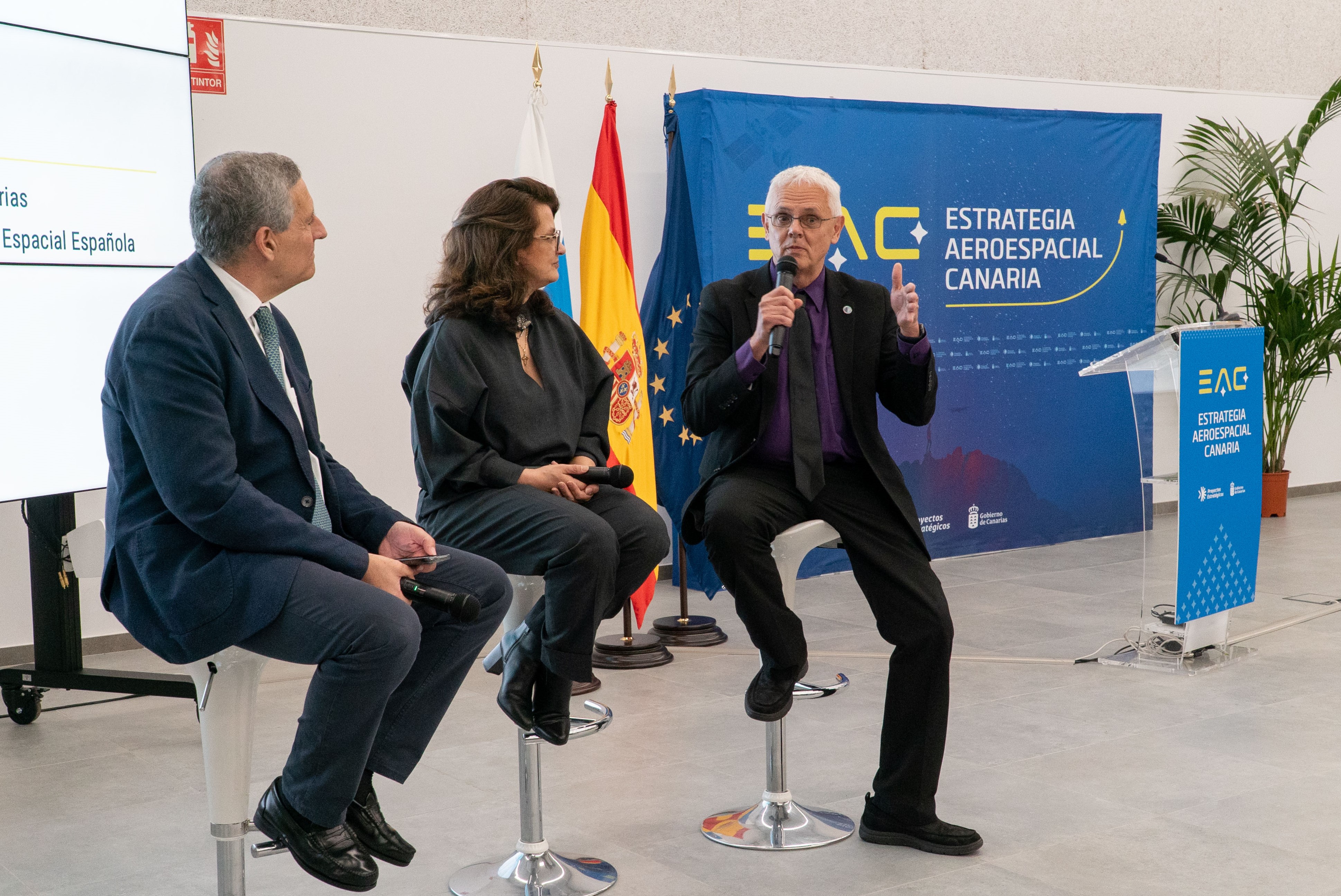
The IAC contributes its full scientific and technological expertise to society through what is now known as “dual-use” technology. “That is, technology developed for astrophysics is now being applied to various sectors, from environmental monitoring to health and agriculture, for example,” Martínez Pillet explained. He added: “What we are doing today is showing how the IAC can contribute to all these existing space initiatives, such as the first Canarian satellite currently in orbit, equipped with technology developed by the IAC’s space division, IACTEC Space, which is already capturing high-resolution images and monitoring situations like volcanic eruptions, droughts, or wildfires.”
Finally, Martínez Pillet reaffirmed the IAC’s commitment to strengthening the aerospace sector in the Canary Islands: “We will continue collaborating with all authorities and public and private stakeholders in the Canary Islands to achieve this,” he concluded..
The Canary Islands Aerospace Strategy, coordinated by the Presidency of the Government through the Directorate General for Organic Coordination and Strategic Projects, includes among its lines of action the creation of an Operational Advisory Committee for the Strategy and a Canary Islands Aerospace Alliance. This alliance will include representatives from all relevant stakeholders in the public and private sectors, as well as scientific and technological centers and the Canary Islands’ universities.
The goal is to pool efforts to map out aerospace projects and initiatives, align priorities, and maximize the synergies and potential capacities of the Canary Islands in this sector.
National and International Partners
The EAC also underlines the need to align with international and national aerospace strategies and initiatives, aiming to position the Canary Islands as an international benchmark in the aerospace domain. In this regard, it will coordinate with programs such as those of the Spanish Space Agency (AEE), the Aerospace PERTE, and the Strategic Agendas of the Spanish Aerospace Technology Platform (PAE). The EAC also seeks to create synergies with equivalent initiatives from other autonomous communities, such as Catalonia’s New Space Strategy, Andalusia’s Aerospace Strategy, or Galicia’s Civil UAVs Initiative.
The strategy also involves collaboration with aerospace strategies from other countries and regions with similar challenges. One example is the joint work already underway with the Space Azores Strategy in organizing the upcoming NEREUS European network symposium, which brings together European regions that use aerospace technologies and will be held in the Portuguese islands this coming October.
This pursuit of national and international allies was also evident in the EAC presentation event, which featured a video message from Juan Carlos Cortés, Director of the Spanish Space Agency, applauding the initiative of the regional government. The event concluded with several panel discussions, focusing on space, island aerospace initiatives, and the public-private collaboration needed to advance the archipelago’s commitment to the aerospace industry.
